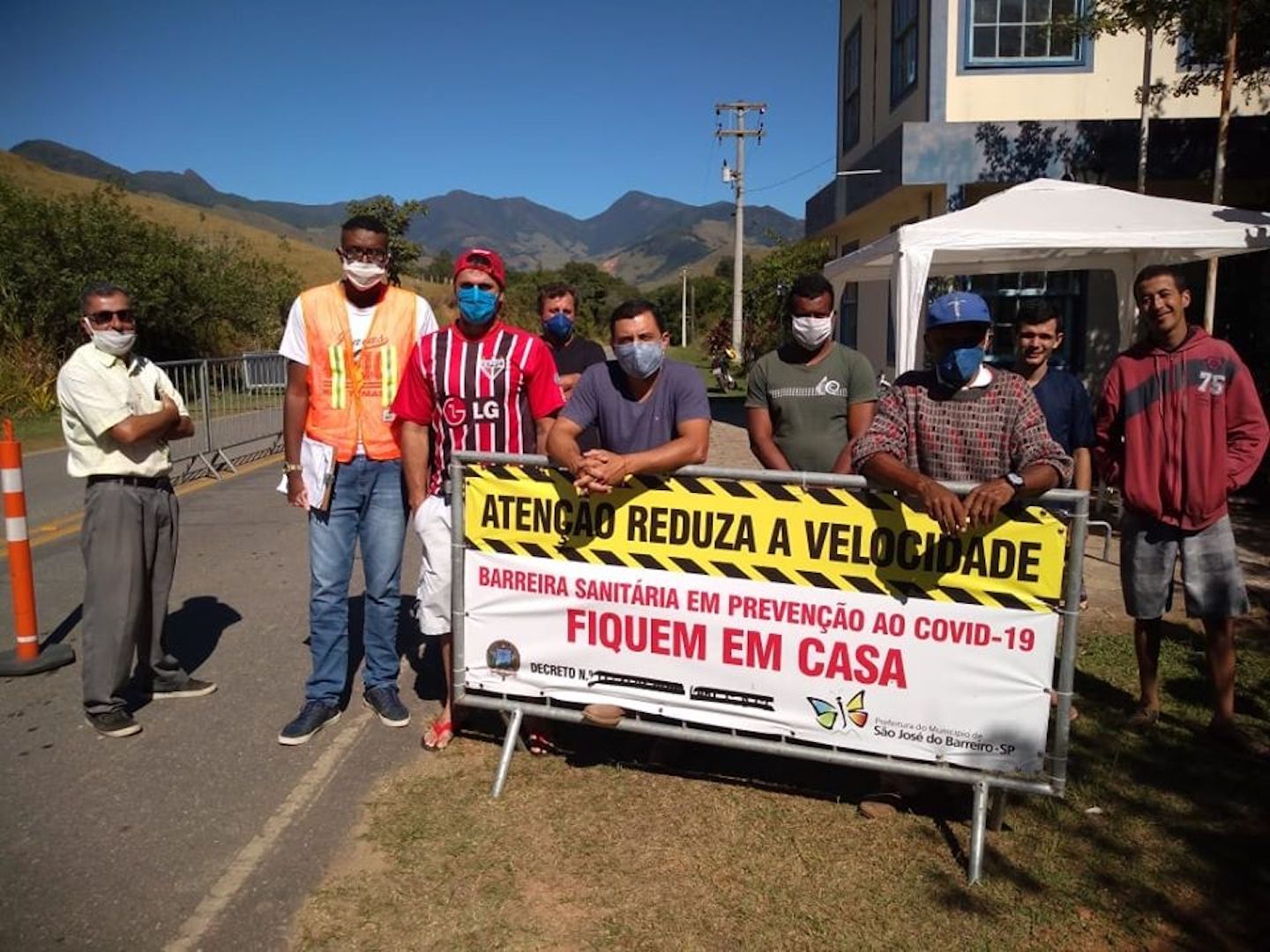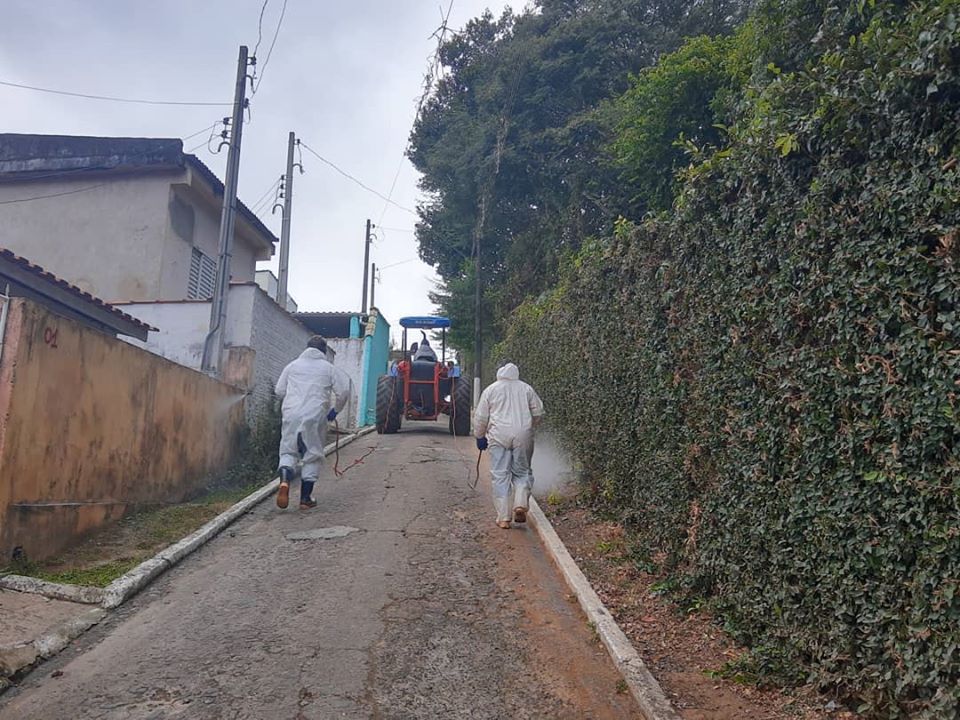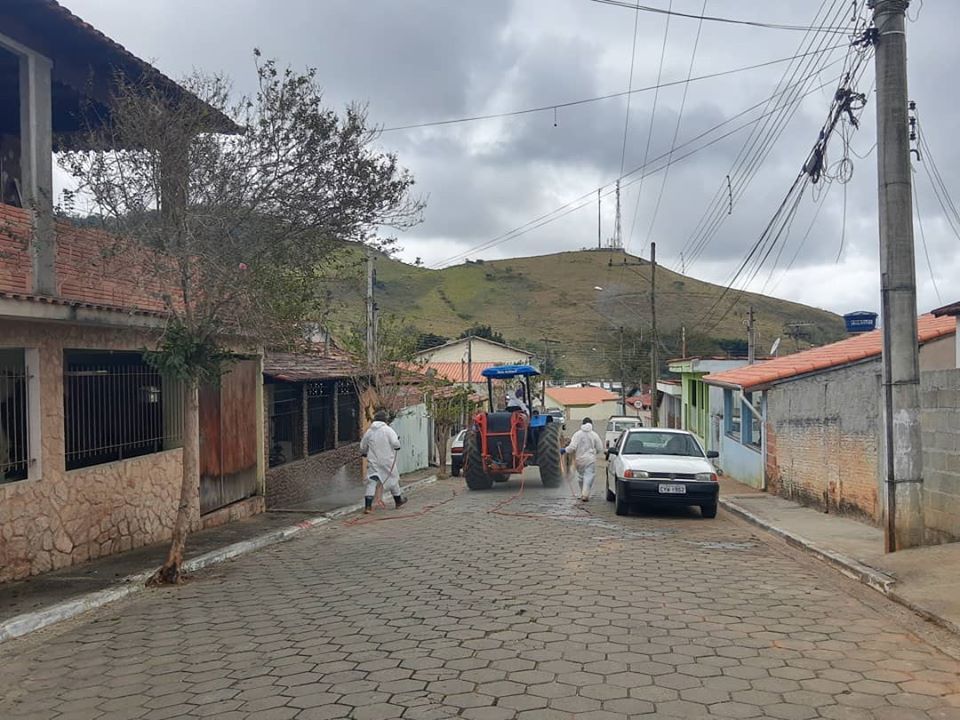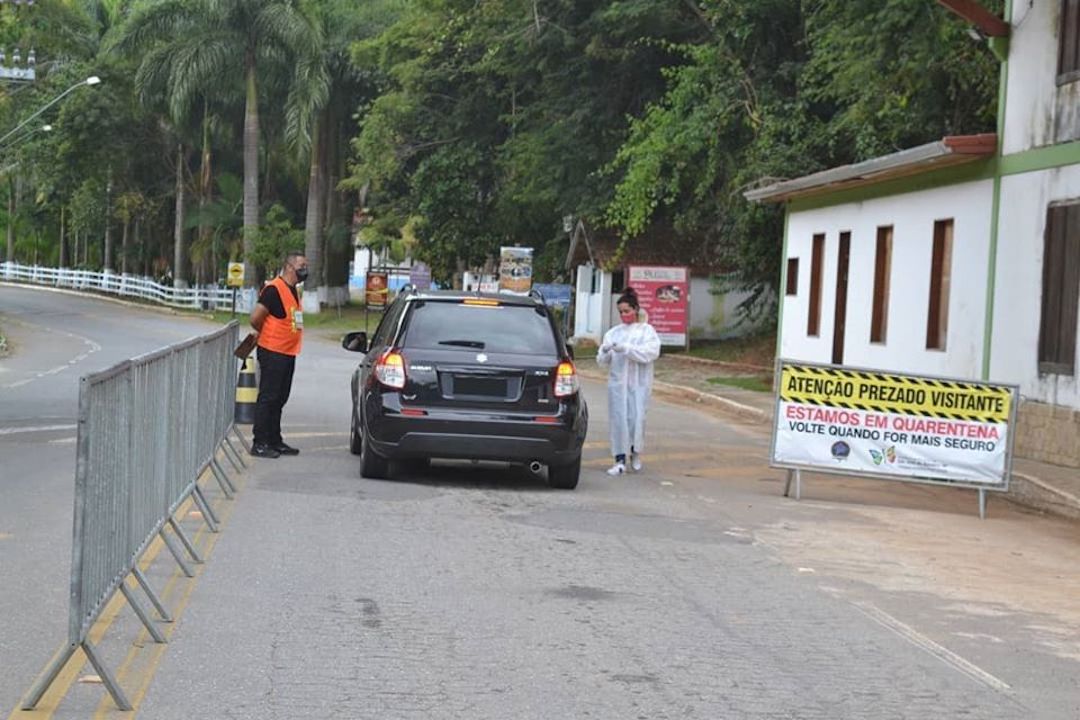SÃO PAULO, BRAZIL – Almost 150 days after the first case of Covid-19 was registered in Brazil, five small towns in São Paulo, the state with the highest number of cases and deaths in the country, remain coronavirus free. With few residents, these cities have been able to keep the virus from infecting their citizens.

São Jose do Barreiro is a small town near the border with Rio de Janeiro, with a population of just over 4,000. Its waterfalls, hiking trails and mountain climate attract thousands of visitors every year to its streets. This year, however, things have been a little different.
“We have put sanitary barriers on the two highways that lead into our city,” says Emmanuelle Camila, who works in the city’s communications department, tells The Rio Times.
“By law we can’t bar anyone from passing through, but we check the temperature of all passengers arriving by bus or automobile. If they have a higher-than-normal temperature we advise them to go back to their cities and get themselves checked out in a hospital or health clinic,” she says.

If they refuse to leave then the city’s health officials are called to talk to them. For those who register a normal temperature, Camila says, they are asked to remain inside their homes for seven days.
The city also has put up dozens of posters about prevention and conducts sprayings in the streets at least once a day.
“We haven’t had a case registered yet, but since we are close to towns that have a high number of Covid-19 contamination we are within the state’s ‘red zone’,” she says with a sigh. That means that restaurants are only allowed to operate as delivery, all bed-and-breakfasts and hotels are closed, as are the main tourist attractions.
“We usually get a lot of tourists here for the July school vacations, but this year we have very little movement,” she says.
The population is cooperating, says Camila. “We have two health posts in the city and since the pandemic began, we were able to get acquire a respirator. But if the patient is in critical condition we will have to get him to a hospital in another town,” she says.
Also in the eastern part of the state, Lagoinha is another city with no recorded cases of Covid-19. In this small town, in addition to the sanitary barriers to check travelers’ temperatures at the entrance to the town, city officials are also urging residents to buy from their local shopkeepers, thus avoiding going out of town for supplies.
“People are preferring to get supplies around here so as not to run the risk, as the nearby cities have many cases,” Carlos Eduardo Coelho, a shopkeeper in Lagoinha who owns a small market, told local newspapers.
All the way down in the southern end of the state, near the Parana border, municipal officials in Florinea made sure that all its residents have face masks by delivering them themselves.
“We delivered house to house, so that no one would claim they didn’t have it, and we reinforced the inspection,” said the city’s Secretary of Culture, Ítalo Garcia, in an interview to newspaper Estado de S. Paulo.

Very near the Paranapanema River, the city is a big hit with water-activity aficionados, says Garcia. “We have two large condominiums that receive tourists and sports fishing enthusiasts on the weekends, but we did an intense (prevention) job with them,” added the official.
Also located in the southern portion of the state, in the municipality of Cruzália, officials decided to closely monitor its population by testing those who experience flu-like symptoms. People arriving from other parts of the state also need to notify city hall and undergo a checkup by the city’s health team.
To maintain a rigid control over the situation, says health inspector Luciana Carvalho Dias, the city makes daily rounds to check up on residents. “These rounds are done twice per day, and then the inspector on duty takes the phone home and will check up on any complaint,” says Dias.
The majority of small towns in the state, as well as Brazil as a whole, have very little health resources to deal with a surge of Covid-19 cases. They usually possess one or two health posts but have no ICU beds for Covid-19 patients, and are not as lucky as São Jose do Barreiro to have been able to secure a respirator for its population. This is the case of Ribeirão Corrente, population 4,273, located 420 km north of Sao Paulo city, one of the municipalities still virus-free.

“Here there is one basic health unit which operates Monday through Friday during normal working hours,” Etiene Siquitelli Silva, the city’s municipal health secretary tells The Rio Times.
“If one needs a respirator we will have to send him to a larger city, like Franca,” he adds. Siquitelli Silva says he, his wife and his children, all were tested positive for Covid-19 but since they all live in neighboring Franca, their cases were registered there.
Unlike São Jose do Barreiro, after the first 30 days of the pandemic (March/April), restaurants and shops in Ribeirão Corrente were allowed to open.
“We are lucky we don’t have major highways coming into our town,” he says, adding “The population has been great. They have adhered with no problem to the use of masks and are trying to keep social distancing.”
Health officials today are very concerned that as the virus spreads into Brazil’s more rural areas, into smaller towns with less medical resources, the country’s death toll will soar. For these officials, the best option, for cities like Florinea, Lagoinha, Cruzalia, São Jose do Barreiro, and Ribeirão Corrente, in order to reduce the risk of having high death rates due to Covid-19, is to monitor their citizens, keep them informed as to how to protect themselves and maybe even try to isolate them from the rest of the country.

